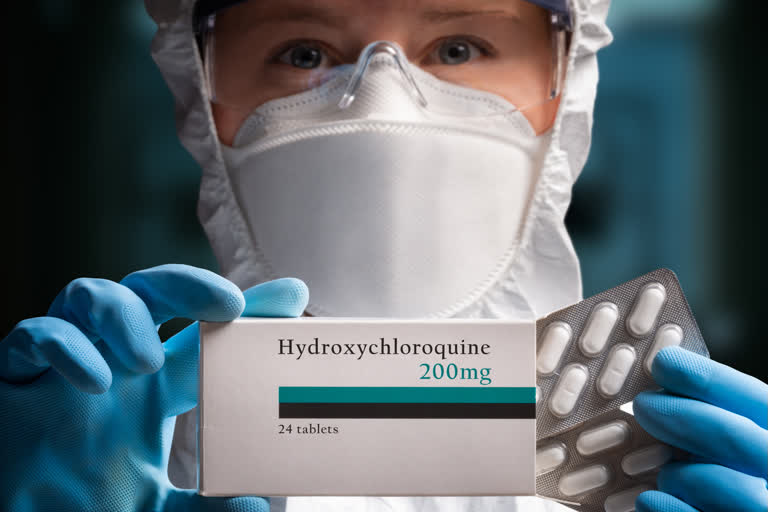New Delhi: Amid several ongoing studies on the efficacy of hydroxychloroquine (HCQ) as prophylactic for healthcare workers (HCW) fighting against coronavirus, latest findings by India’s apex medical research institute (ICMR) has said that those on HCQ prophylaxis are less likely to develop SARS-CoV-2 infection.
The Indian Council of Medical Research, however, suggests a change in HCQ regimen for HCWs.
“Investigations from government hospitals in New Delhi indicated that among HCWs involved in COVID-19 care, those on HCQ prophylaxis were less likely to develop SARS-CoV-2 infection, compared to those who were not on it,” the ICMR findings said.
Another study from a tertiary care centre at Kolkata, recently reported that among 106 HCWs, HCQ consumption as pre-exposure prophylaxis was associated with a significant reduction in risk of SARS-CoV-2 infection.
None of the HCQ users reported any serious adverse effects. A cross-sectional questionnaire-based study among 166 HCWs involved in COVID-19-related services across India reported that use of HCQ for pre-exposure prophylaxis was associated with a relatively higher incidence of adverse effects.
Also Read: HCQ Ineffective As a Preventive Antiviral Against COVID-19
However, the majority were gastrointestinal side-effects and self-limiting, with no serious cardiovascular events. The gastrointestinal adverse effects can often be lessened by taking HCQ with food, the ICMR said.
“In the context of using HCQ for short-term use in COVID-19 (treatment or prophylaxis), it is critical to understand the relationship between dosing and concentration profiles. HCQ has rapid absorption after oral administration, with a large total apparent volume of distribution attributed to tissue uptake by ion trapping rather than tissue binding. Consequently, the terminal phase elimination half-life of HCQ has been estimated to be about 54 days. Thus, the initial blood concentration profile of HCQ when used in the acute condition is determined mainly by distribution processes and not by drug elimination. In such conditions, the treatment regimens are designed to include an initial loading dose to fill the body so that concentrations that would take weeks to achieve, are achieved as soon as safely possible,” the ICMR said.
However, the loading dose will not maintain the target concentration unless an appropriate maintenance dose is also used. The ICMR Task Force recommended the initial loading dose of 400 mg twice on day one followed by a maintenance dose of 400 mg once weekly.
“However, we suggest that the regimen be changed to 400 mg twice weekly (instead of once a week) taken three days apart. This will lead to a quick achievement of the 4-6 maintenance doses shown to impart protection against SARS-CoV-2 infection without adversely affecting the safety. This is critical because of the potential to protect the HCWs in 2-3 weeks instead of 4-6 weeks currently; and with the clinical experience and pharmacokinetic profile of HCQ, this regimen should be well-tolerated,” the ICMR findings said.
Also Read: India will continue using HCQ for the treatment of COVID-19 says, Chief of Emergency Medicine
